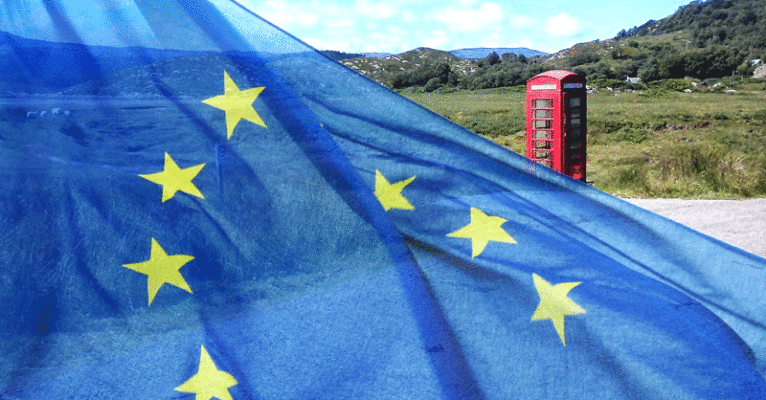The EU referendum and the UK’s environment: What are the implications for democracy?

Environmental questions are increasingly being discussed in the EU referendum campaign, but often on their own, disconnected from the more mainstream debate. Yet considering the environment also yields crucial insights into issues central to the campaign such as parliamentary sovereignty and democracy.
How Democratic is the EU and does it matter?
The EU is often accused of being of being opaque, unaccountable and far-removed from European citizens. This observation raises the question of whether an exit from the EU would result in greater accountability and transparency – and whether such a move would be preferable from an environmental perspective.
One advantage of EU decision-making is that it is to some degree insulated from domestic political pressures: a deliberate design choice by Jean Monnet who sought to develop a technocracy in the Commission (originally known as the High Authority) that was vested with supra-national decision-making authority that freed it from the vagaries of short-term national politics. The Commission would then be free to develop policies that served the wider European political and economic interest. The Council of Ministers and later European Parliament were designed to balance the authority of the Commission and provide democratic accountability. The European Parliament, as the only directly elected EU institution provides the key vehicle for democratic accountability within the Union’s institutional infrastructure. As European elections are run on the basis of Proportional Representation (PR) across all member states, in the UK each citizen’s vote counts for more in European elections than it does in our majoritarian local and national elections. Hence, the United Kingdom Independence Party (UKIP) and the Greens gained millions of votes in the 2015 General Election but have only one MP each compared to 22 Members of the European Parliament (MEPs) for UKIP and 3 MEPs for the Greens.
It widely recognised in many cases (e.g. Bank of England) that it may be advantageous to insulate important policies from wider political pressures, subject to democratic checks and balances. Certainly in the case of climate change there are clear benefits that accrue from long term policy planning that is to some degree protected from partisan conflict. The US provides a cautionary case of the ways in which environmental and climate politics can become a political football, with concomitant impacts upon long term-planning.
However, a clear drawback of the EU’s institutional structures is that it can lead to the adoption of policies that have limited popular support in national settings (e.g. bail outs and austerity measures). It is unsurprising then that the democratic checks and balances in the EU – and their limitations – have featured prominently in the referendum debate.
Most EU environmental legislation is adopted by the ordinary legislative procedure, under which the Commission proposes policy that is then negotiated over and jointly adopted by the Council (representing the 28 countries) and the European Parliament. Environmental policies relating to fiscal matters, energy supply and land use planning are subject to a different decision-making process that requires unanimity voting in the Council. There is currently scope for the UK Parliament to use the so-called yellow or orange card procedures, which allow national Parliaments from across the EU to raise concerns about policy proposals that could be better regulated at national or regional rather than EU levels. However this process, as well as the newly negotiated red card procedure, requires coordination between different national parliaments, which can be difficult to achieve.
What about ordinary citizens? The scope for ordinary UK (or indeed any EU) citizens to engage in the process of decision-making is limited, although growing. The European Citizen’s Initiative is a recent mechanism allowing one million European citizens to sign a petition asking the Commission to consider legislating on certain issues (e.g. on GMOs). Many European policies include a consultation phase before the proposal is finalised. For example, the last reform of the Common Agricultural Policy received 5500 contributions from across the EU. Once a proposal is formally adopted by the European Commission, there is limited scope for citizen involvement in the legislative process – although the European Parliament’s rejection of the Anti-Counterfeiting Trade Agreement Treaty (ACTA) in 2012 came after strong street protests and online petitions. What then will change post-referendum?
In our expert review of EU-UK environmental relations we concentrated on three scenarios: i) Remain; ii) the Norwegian option where the UK leaves the EU but joins the European Economic Area (EEA) – which is the least disruptive ‘Brexit’ option iii) the Free Trade option where the UK leaves the EU and pursues a new trade relationship with the EU and other states – the most disruptive Brexit option.
Remain
Under the ‘Remain’ scenario it seems likely that much will be the same. The UK will continue to have representation in the Council and Parliament. The UK will continue to enjoy the right to adopt stronger environmental standards, under the so-called ‘environmental guarantee article’ (TEU 193).
Two current areas of concern for the environmental movement are the adoption of the Trans-Atlantic Trade and Investment Partnership agreement (TTIP) and the attempts to roll back habitats and birds legislation at the European level. TTIP has attracted opprobrium from a wide range of actors for multiple reasons. The risk it poses to domestic/EU environmental legislation is high up on the list of concerns, as such policies may be at risk of being set aside as hindering competitiveness under the agreement. Ironically it appears that if we stay in the EU we are more likely to see TTIP blocked than if we leave. The French and Greek governments have expressed strong opposition to the agreement, whereas our current government has lobbied in its favour. Germany has seen massive public protests against the deal, echoing protests across Germany against ACTA in 2012. In any case, to be finalised, TTIP would need to be ratified both by the European Parliament and by all national parliaments, as well as the US Congress.
On habitats and birds, the environmental movement obtained more than half a million signatures from citizens across Europe to defend these pieces of legislation. The forthcoming policy proposals will be heavily scrutinised, and give some indication of how sensitive to popular pressure the European Commission is on the issue of nature legislation.
The Norwegian Option
If the UK votes to leave, it will have two years under Article 50 of the Treaty to negotiate its exit. One option is to negotiate membership of EFTA (European Free Trade Association) and from there on to become a member of the EEA like Norway.
Most EU rules would continue to apply in the UK, but the UK Government would lose its seat at the decision-making table. A number of EU environmental rules would cease to apply: notably the rules on bathing water, habitats and birds. This means future UK governments would be able to decide to strengthen (a right that is already currently enjoyed) or weaken regulation on these issues. Finally, the EU Common Agricultural and Common Fisheries Policies would also cease to apply. As agriculture is a devolved matter in the UK, this Norwegian option could lead to diverging policies adopted across the UK.
The Free Trade Option
Under the Free Trade Option, most EU rules would cease to apply in the UK. On most policies, including the environment, there would be greater apparent parliamentary sovereignty. Yet this increase in de jure sovereignty, may carry important de facto limitations: Not only would the UK still be bound by its international commitments, it would also continue to apply many EU rules, notably product standards. Indeed, the size and strength of the EU Single Market means EU product standards tend to be adopted across the world, even in non-EU countries. This is, for example, the case for chemicals regulations and many rules around handling of hazardous waste.
This prospect raises questions about the content of future trade deals. As noted above, the current government has been a strong supporter of TTIP, despite growing public worries. This highlights the complicated democratic credentials of trade negotiations: would UK-led trade negotiations receive more, or less public attention than the on-going TTIP negotiations? Would UK negotiators listen to public disquiet more or less than EU negotiators?
Conclusion
Overall, the Norwegian option is the weakest from the democratic point of view, since it would see the UK become a taker of policy with little opportunity to shape its content and with no directly elected representatives in Brussels to hold EU actors to account. Under the free-trade option, there is an opportunity for greater de jure input into policy. However, as with the Norwegian option the UK will become a taker of EU policy. In order to access the Single European Market many product standards will have to remain in place. Under the Remain option the UK has scope to push ahead with stronger domestic environmental standards, but limited ability to roll them back, which is potentially advantageous from an environmental perspective.




